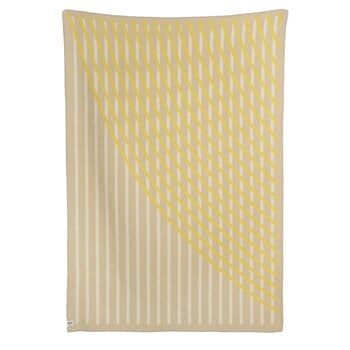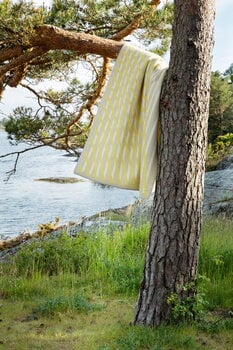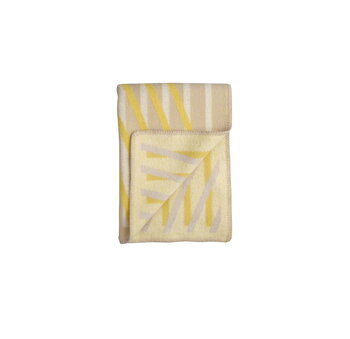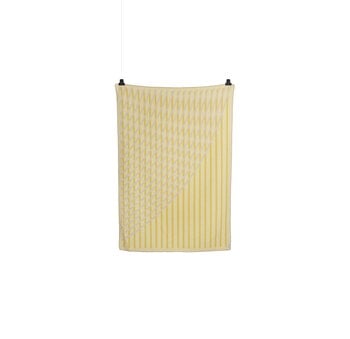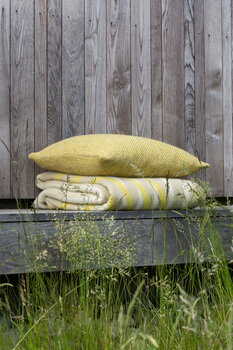Røros Tweed's Bislett throw, designed by Hallgeir Homstvedt, is a delight for all senses. The distinctive pattern is inspired by the Moiré phenomenon, which can occur when two similar patterns are layered on top of each other, creating a sense of movement. The Bislett throw has been named after Oslo's main athletics track, which has a personal connection for the designer.
High-quality home textiles by the Norwegian Røros Tweed are made from 100% Norwegian lambswool, shorn from sheep living free in the mountains. The manufacturing process is also kept fully in Norway to maintain high standards, which have been essential to the company's continued success since the 1940s.
